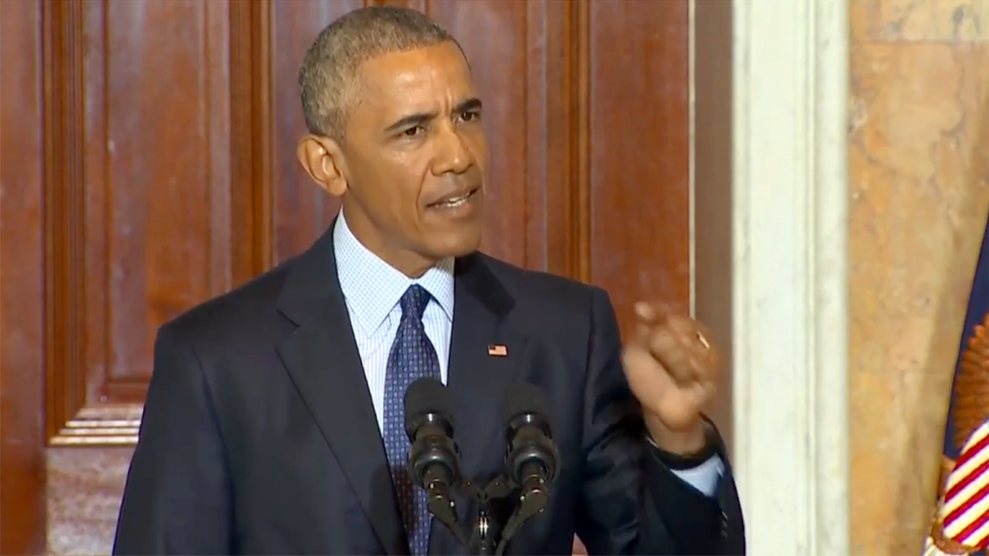
Mother Jones illustration; Shutterstock
This post was originally published as part of “The Trump Files“—a collection of telling episodes, strange but true stories, and curious scenes from the life of our current president—on June 17, 2016.
“By my calculations, one percent of Americans, who control 90 percent of the wealth in this country, would be affected by my plan. The other 99 percent of the people would get deep reductions in their federal income taxes.”
No, that’s not Bernie Sanders. That’s Donald Trump describing the tax plan he proposed in 1999, a plan targeted specifically at raising huge amounts of money from rich people and promoted in language that Occupy Wall Street would have loved.
Trump proposed hitting anyone worth $10 million or more with a one-time 14.25 percent tax on their assets, saying it would raise $5.7 trillion dollars and wipe out the national debt. According to Trump, his own bill would have come to more than $700 million dollars (pegging his net worth at just under $5 billion), but he said he was happy to fork over the cash. “Some will say that my plan is unfair to the extremely wealthy,” he wrote his 2000 book, The America We Deserve. “I say it is only reasonable to shift the burden to those most able to pay…I believe we have an obligation to pay. Taxes represent the cost of freedom and its defense. It is a small price.”
The tax plan was part of Trump’s brief and unsuccessful run for the Reform Party nomination in 2000. But while the wealth gap between the top one percent and the rest of society has risen dramatically since then, Trump has backed off his willingness to sacrifice his own money for the common good. Not only did he drop support for his 1999 plan, but his 2016 tax plan would increase the national debt by another $10 trillion and hand out tax breaks that would be “highly concentrated among the highest-income households, which would get a bigger percentage of the tax cuts than the share of taxes they pay now,” writes the Wall Street Journal. That plan is so expensive that the Trump campaign has set up a team of economists who are “tweaking” the plan to lower its costs.

















